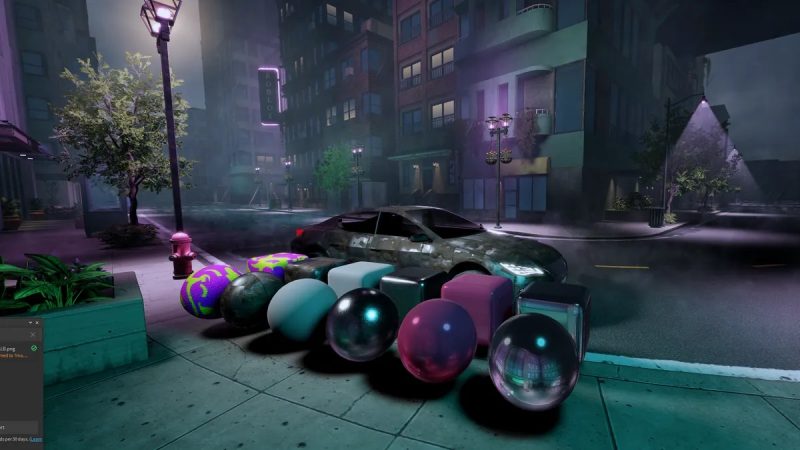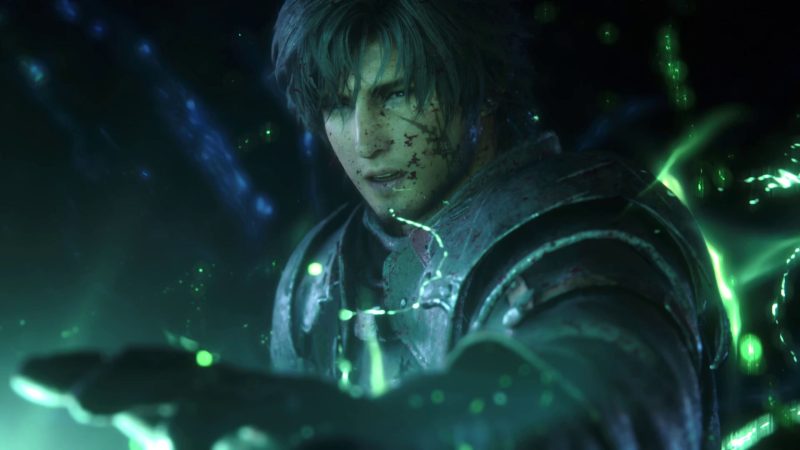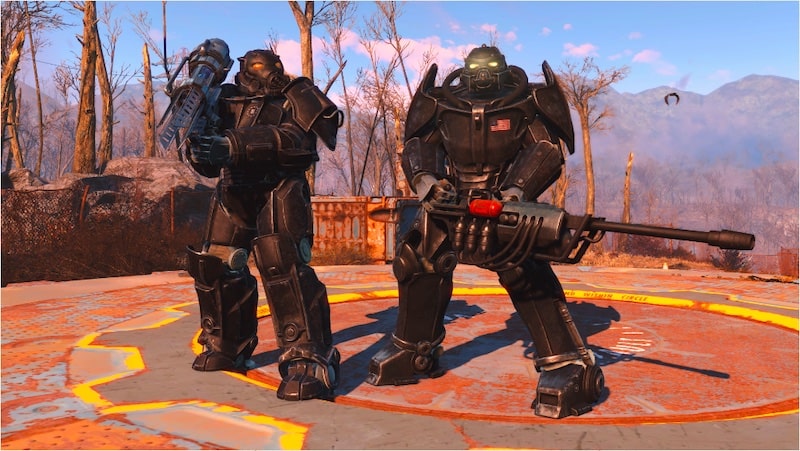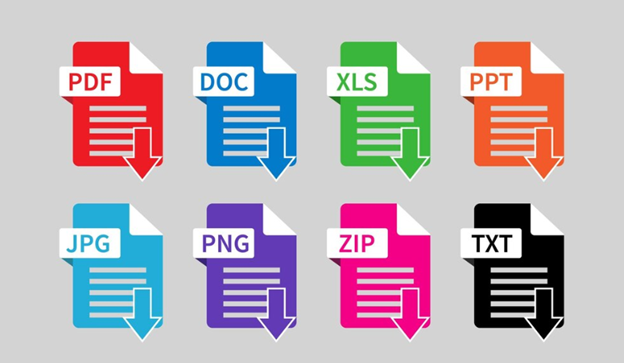Last month, I got to speak to Francine Bridge and Scott Brown, two indie developers part of the team at Poppy Works that recently released Slave Zero X, a 2D side-scrolling action game that blended 2D characters and sprites with a 3D background.
At the time, along with talking about Slave Zero X and how it is very much a modern game from a different time, I also asked them both for their thoughts on generative A.I. in game development, and the currents state of the industry among the studio closures and rampant layoffs.
Their answers didn’t make it in to the original interview because they felt like they needed more of a focus in themselves, and didn’t fit with want I wanted to highlight in the interview, which was Bridge’s and Brown’s work on Slave Zero X alongside the game itself.
Generative A.I. is a big concern for a lot of game developers, and for good reason. While there is honest potential for A.I. tools to be helpful in the game development process, those are not the use cases that gaming studio and publisher CEO’s talk about.
Take-Two boss Straus Zelnick has talked about how he thinks A.I. can make NPC interactions “more interesting.” Andrew Wilson. CEO of Electronic Arts spoke just last week about how he believes A.I. can help create the game worlds of tomorrow, where development efficiency is increased and monetization.
Wilson believes A.I. will forge a path towards “deeper, broader, more deep, more personal experiences” that EA can then “give to the world,” and upon releasing these deeper while also at the same time broader and also at the same time more personal experiences to the world’s “three billion” players, they will begin “creating personal content and expanding and enhancing the universes that we create, and building and creating their own universe on our technology platform, all of a sudden we are the beneficiaries of platform economics.”
Everyone wants their own Fortnite or Roblox, where it’s the player base making the content that most people enjoy, while the studio can keep costs down not having to pay people to create the content players enjoy.
Warner Bros. CEO of global streaming and games JB Perrette even went as far to talk about wanting games to be platforms where people “live and work.” GamesIndustry.Biz’s Brendan Sinclair rightly called it out as Perrette wanting “the Roblox model of user exploitation.”
I think it’s safe to say Wilson’s words echo the same feeling. Perrette didn’t explicitly mention generative A.I. as the way to get there, but it would be naïve to think generative A.I. wouldn’t be on the table for Perrette and co. if they believed it could forward their goals. Especially if they look over the aisle at their competitors doing it.
A connecting through-line for all of these executives is they’ve been a part of mass layoffs at their companies. They tell developers, the ones who are creating value for the company by making games, that they no longer need them, and the next day tout their belief that they can remove the human-factor in development even more.
And yet, despite the removal of humans from the creative process and development of these games, these new titles will still be able to provide “deeper, broader, more deep, more personal experiences.” Because who better than robots to try and connect with people on a deep and personal level through art.
Meanwhile, these practices aren’t questioned by investors, because how the sausage is made doesn’t seem relevant to them, so long as it’s made in a way that maximizes profits. Simply wanting to make games doesn’t seem to cut it with VCs.
If you want to understand why every studio is pressured to develop live service games, just look at the discourse from gaming VCs, it's depressing.
"We love indie games"
but only if
"monetization + live service + hyper growth" https://t.co/R1zeTYiUTf pic.twitter.com/BxbY1aWIyw
All together it’s a grim outlook, and plenty of developers believe it’ll get worse before it gets better.
In the wake of all that, Bridge and Brown’s thorough and eloquent answers on two complicated topics are important because they summarize and strike at the core of them as people directly impacted by the dangerous and damaging realities that go along with both.
Indie Devs Speak On Layoffs And Generative A.I.
PSU: Are you concerned about generative AI tools being used in game development? Would you ever use them, and do you think there are ways AI and generative AI tools can be helpful in development?
Francine Bridge:
I’m immensely concerned about the existence and implementation of “AI” programs in both the games industry as a whole and my specific segment, which is illustration and visual design. I don’t think the images created by these programs are anywhere near a genuine “Threat” in the sense of replacing the value of any kind of human input, but I see a real threat coming from industry segments driven primarily by shareholder value and investment buzzword pursuit using them regardless because it facilitates their specific kind of pump and dump boom exploitation.
I think this is going to be similar to the “NFT” episode of 2021-2022, where enormous numbers of companies decided they suddenly had to have an “answer” to investor interest in this “new technology” and wasted enormous amounts of time alienating their workers and their audience through pushing it, only to see none of the “Infinite promise” manifest subsequently.
I think “AI” has a similar arc ahead of it – genuine use cases for these kinds of sorting algorithms may exist where they can eliminate the worst kind of menial grind (I know some 3D artists who’ve expressed to me they would like to have an algorithm that can do the arduous task of retopology for them), but I think we’re already seeing a boom of miserable, substandard work being created, audiences complaining, frantic backpedaling etc.
In the meantime, before the scam is exposed, thousands of people are being made redundant by execs who’ve bought into the pipe dream. I think it’s deleterious spiritually, creatively, financially, and technically. It’s plagiarism and abdication of human value. I abhor AI generative software. The only solution is the slow exposure of said scam over time, and a demand for better labour protections and practices to prevent this kind of thing from happening again.
“A computer cannot be held accountable – therefore, a computer must never make a decision” – IBM (1979).
Scott Brown:
There’s a degree to which I think automation comes for all labor eventually, and if I try to think about it with idealistic optimism, it’s nice to imagine a world where machines take over the dangerous hard work of maintaining society and mankind can be left to its leisures, but we don’t live in a world so kind, and that means it’s hard for me to get excited about any technology that positions itself to eliminate jobs that people actually enjoy doing.
I think we’re very much still stuck in the tail of the hype phase, but reality seems to quickly be catching up with the long-term feasibility and resource costs of generative content, so I think my concerns have cooled somewhat compared to, say, a year ago.
It’s a big topic, and it’s tough to cut through some of the nuances, but if I try to sum it up, I just think generative AI is really good for amusing yourself and pretty unfulfilling for use in entertaining someone else. In matters of quantity, repetition, and randomization, AI will probably keep finding a place. In matters of quality, curated presentation, and emotional resonance, human-authored art will win out.
For these reasons, I think the rise of generative AI has been a big wedge driven into the middle of our media landscape that is starting to push us faster and faster into debating what is “content” and what is “art” and how that intersects with games as products. I think there can be a place for both, but I don’t feel excited about games stratifying across two extremes like this more than they already are.
For my part, as an animator focused on pixel art and fighting game adjacent combat, I feel a little shielded from generative AI right now. I think the average person who will play Slave Zero X is probably a little more curious about how the sausage is made and appreciative of the craft than most, and I’m really thankful for that! We’re already a bit more on the art for the sake of itself side of things.
There are so many little flourishes that all of our teams put into the game that result from a shared enthusiasm for the experience we were building. That kind of inspiration spreading across different disciplines and personal touches is where all the magic happens, and I just can’t see a workflow that relies heavily on generative content achieving that.
Whether or not that matters to gamers at large in the end, I guess, remains to be seen. I’m optimistic the types of games I like to be involved with will still have demand and still be largely crafted by human hands, but I mourn the loss of work for creators in styles or genres where their work goes underappreciated.
PSU: Layoffs and studio closures are always upsetting, what do you think the immense amount of them says about the industry, does it make you think twice about making games?
Francine Bridge:
I think these issues are endemic to the larger state of all industries under the system we currently occupy – I think it’s appalling that the infinite growth model means nothing can merely exist as-is. The purpose of a company cannot be simply to secure enough profit to pay employees and facilitate their next work for its own sake – it must exist as an endless exponential ramp to more value, and the natural result of that mindset is the disposability of human life.
It doesn’t make me concerned about staying in the industry – my own experience with [Slave Zero X publisher] Ziggurat Interactive demonstrates that there are studios and publishers who don’t reflect this kind of behaviour. I’ve been enormously grateful to them for everything they’ve done for myself and [Slave Zero X developer] Poppy Works.
I think it’s possible there may be an enormous restructuring from the top down imminent – that what was “AAA” will again shift, and old and new ecosystems will collide and hopefully generate new possibilities, but the reality is that we need, again, better labour practices, better labour protections. We live in the infamous “interesting times” – a scenario where the world’s largest titles and studios can receive enormous success but still see catastrophic layoffs, while a handful of kids can make a game with the most bare essentials and see such enormous reward that it changes the face of a whole tier of the industry.
It’s incredibly difficult to imagine navigating this constantly inverting reality – I hope I can make my best effort regardless.
Scott Brown:
I’m hoping what we’re seeing is a harsh, temporary phenomenon resulting from lots of speculative growth and acquisitions based on pandemic booms in entertainment that were never going to be permanent. The most disappointing thing to me is always the human cost, as the people actually brought all the value to their companies.
My game career has been much more indie than AAA, so there’s a certain level of instability hopping from project to project and juggling multiple games at once that I’ve accepted in my life, and I love the variety. That being said, I know I make better stuff when I have longer-term security and can plan ahead. Many people need that solid, long-term, secure environment to do their best work; no matter how it shakes out, this is harmful to the overall psyche of the workforce.
Even if I’m not immediately affected, I’m sharing the stress of my friends in at-risk studios, and I’m seeing publishers more cautious about which pitches they approve.
Again, I hope we see a return of “B” and “AA” games. Rather than pushing into the realm of succeed-or-die AAAA games, I’d like to see some risk mitigation betting on more mid-sized creator-led projects. I’m hopeful many of the incredibly skilled people out there affected by layoffs are able to reform together into new studios and share all their institutional knowledge.
I’m just nervous that shaken investor confidence may lead to short-term doubling down on safe and proven concepts for games. In the wake of it all, and reflecting on that worry, it makes me even more proud of what we’ve made with Slave Zero X, and I’m glad Ziggurat is willing to back us!

 1 month ago
49
1 month ago
49








